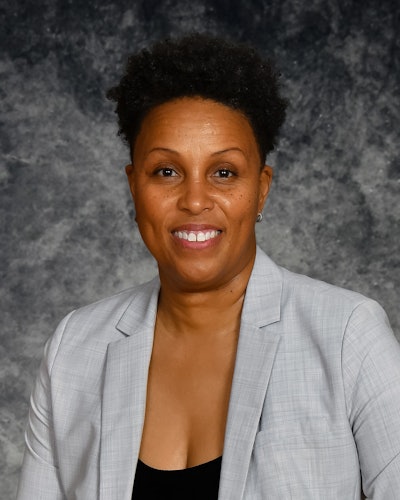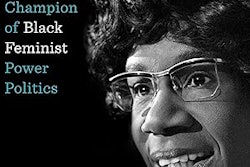The Major League Baseball All-Star Game in Seattle in July marked the launch of the HBCU Swingman Classic, a game that featured 50 Division I HBCU baseball players. Propelled by the MLB-Major League Baseball Players Association Youth Development Foundation (YDF) and Hall of Famer/YDF ambassador Ken Griffey Jr., the televised game enabled HBCU baseball players to showcase their talents on a global stage.
 Jean Lee Batrus
Jean Lee Batrus
“This is one of the biggest stages that has ever been given HBCU schools and their top baseball athletes,” said Sherman Reed, head baseball coach at Coppin State University. “We’re already using this when we go out to talk to these kids about coming to Coppin to pursue baseball.”
Promoting diversity in baseball
When Batrus became executive director in 2018, she worked on building and implementing programs around the U.S. more than $25.1 million has been spent across 40 states to continue growing diverse participation in baseball.
“This showcase is so important to those kids,” said Batrus. “When they tune in, they will see high level talent on the field that looks like them. They’ll also see Ken Griffey Jr. in the dugout working with both teams and Hall of Famers like Andre Dawson, Marquis Grissom and Rickie Weeks. That speaks volumes to these children across the country.”
Three players from Coppin State were selected to play in the Swingman Classic — Jordan Hamburg, Rashad Ruff, and Mike Dorcean, who all played on the team that won the 2022 Mid-Eastern Athletic Conference title. This year, the team switched to the Northeast Conference (NEC) made up mostly of PWIs, which brings an increased level of play.
For Tara A. Owens, vice president of athletics and recreation at the University of Maryland Eastern Shore (UMES), having the HBCU Swingman Classic shows that HBCU baseball is important to college athletics. “The exposure is going to be great for our player (Brantley Cutler), and he’ll be able to bring that experience back to his team,” she said. UMES also moved its baseball team to the NEC, which is advantageous for player exposure. Participation in the Swingman Classic will help in recruiting and notoriety. “Most of all, give our student-athlete the experience of a lifetime,” said Owens.
At bat
“We’ve always had the hopes that by putting this game on a national stage like All-Star week, it’s going to bring more visibility for the Youth Development Foundation to talk about our mission and the impact we’re making across the country,” Batrus said.
The participation of U.S. Black players in MLB has declined in recent years. Many current Black MLB players are from outside the U.S. YDF looks to grow participation and develop players of the future.
Batrus said, as the HBCU players took to the field, she hoped that viewers would be inspired to seek out grassroots organizations in their communities and become engaged with baseball. Also, those grassroots organizations are encouraged to reach out to the YDF for funding, equipment, and facilities projects.
“In terms of building the pipeline, if we are producing athletes, whether that’s recreational or elite players in local communities, that’s going to help collegiate baseball, particularly HBCU programs, and hopefully get them into professional baseball,” Batrus explained. “Not everyone will make it to the draft; we’re realistic about that, but what we’re also doing around this game is showing them other career opportunities to stay within our industry.”
Reed said some of the more talented high school players haven’t trusted that they can get the accolades and exposure at HBCU institutions. Having the Swingman Classic open only to collegiate players attending HBCUs means a lot to the head coaches who do their utmost to recruit top players.
“Knowing that the kids will have a chance to at least be nominated or picked for a major showcase on a national scale … shows that you can now get the exposure and recognition,” Reed said. “Based on some of the quotes from the organizers, this game is going to grow to something huge in the future.”
 Tara Owens
Tara Owens
The participating players took part in multiple events, from leadership panels to a luncheon with the chairman of the Seattle Mariners, who spoke about career development. There are many different types of jobs in baseball, from analytics to marketing to scouting.
Looking forward
Reed said if he polls his players each fall about their interest in playing pro baseball, as many as 85% would say they’re at Coppin State to get their degrees, but also want to pursue playing professionally.
“You’re not always sure if it’s just talk or whether it’s sincerity when [MLB] talks about wanting to do their part to increase opportunities for African American kids to play pro baseball in the major leagues,” Reed said. “I think Major League Baseball is making a sincere effort.”
Reed’s coaching staff has recruited players who are legitimate pro prospects, such as the three who took part in the Swingman Classic. Coppin State holds a pro day each autumn — some call it scout day — when it reaches out to MLB to attend a private workout for major league scouts. When Reed first came to the university 15 years ago, only one scout from the Philadelphia Phillies showed up, which he said was very disappointing.
“As we’ve started increasing the quality skilled players over the years, MLB has been coming out to our scout day in large numbers,” Reed pointed out. “I think we had 14 scouts last fall…to look at our kids, our workout and play an inter-squad game. I think the sincerity is there, and the Swingman Classic helps our recruiting. It’s going to help all of HBCU baseball recruiting efforts because guys now know that there’s a big, big possible opportunity on the back end if they come in, play well and prove to be a high-level skill collegiate player. They then can be on the biggest stage.”
Owens notes that the Swingman Classic provides HBCU institutions exposure on the West Coast, which is helpful as that is a huge potential recruiting base, but with no HBCUs in proximity many high school players have no familiarity with the institutions. “It will help all of us serve our mission for our institutions,” she said.
The YDF has provided a $1 million grant towards running the inaugural HBCU Swingman Classic, which will become an annual fixture of the MLB All-Game events. Next year’s game will be in Arlington, Texas. “It’s going to impact HBCU baseball programs by recognizing their strength,” Batrus said. “We’re keeping these players in the pipeline, developing them. It’s going to raise the profile of HBCU programs. I expect to see a growth in interest.”


















